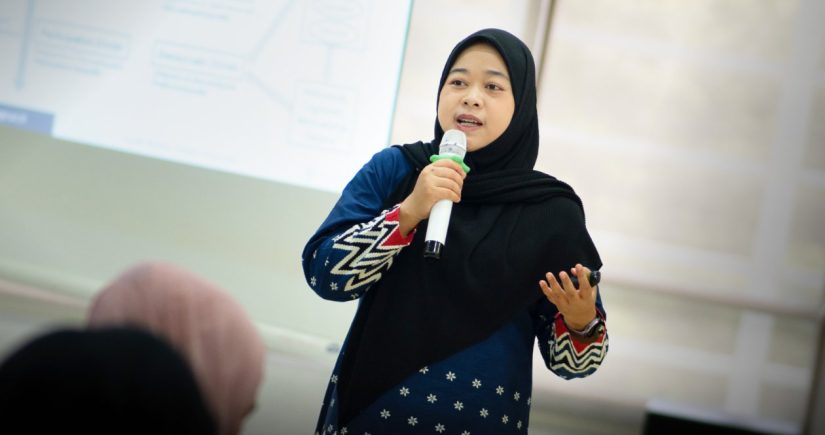
The Department of Public Policy and Management (DMKP) at the Faculty of Social and Political Sciences (FISIPOL), Universitas Gadjah Mada (UGM), welcomed a study visit from the Faculty of Administration and Social Sciences, Universitas Bina Taruna (UNBITA) Gorontalo. The event was part of a collaborative academic initiative aimed at expanding inter-university engagement, particularly in the field of inclusive digital transformation policy and governance in Indonesia.
As part of the visit, students from UNBITA participated in a guest lecture delivered by Alvi Syahrina, S.T., M.Sc., a lecturer at DMKP UGM. The session, titled “Inclusive Digital Transformation Policy and Governance in Indonesia,” emphasized the need to view digital transformation not only as a technological advancement, but also through the lens of social justice, digital literacy, and the risks of digital exclusion.
“Digitalization brings many conveniences, but it also risks excluding those without access to devices, bank accounts, or even reliable internet connectivity,” Alvi explained.
She highlighted that Indonesia’s digital divide is a multidimensional issue. Access to digital technologies, she noted, is influenced not just by infrastructure, but also by individual motivation, ownership of devices, digital skills, and the ability to critically filter information.
“Digital literacy is not one-dimensional. It includes technical skills to operate devices, informational literacy to assess content, and strategic skills to use technology for personal and social development,” she added.
Alvi also addressed the emergence of new social disparities in the digital age, marked by the divide between the “information rich”—those with abundant access to digital resources—and those who remain digitally marginalized.
In the context of public policy, she outlined that digital transformation is a gradual process—starting with data digitization, service digitization, system integration, and eventually, decision-making automation. Each stage, she warned, presents its own vulnerabilities.
“Even in the initial phase of digitization, we already face challenges like data errors, administrative bias, and inequality caused by differing internet access speeds,” Alvi explained.
She stressed the importance of a holistic approach to driving inclusive digital transformation in Indonesia. This includes multi-stakeholder collaboration, infrastructure development, adaptive regulations, and inclusive digital service design—particularly for vulnerable groups.
The lecture concluded with an enthusiastic interactive discussion session. UNBITA students raised various questions ranging from digital policy implementation on university campuses, digitalization challenges for MSMEs, to inclusive digital services for people with disabilities.
This visit marks a valuable moment in strengthening academic networks between institutions and opens the door for further collaboration in advancing public policy knowledge in the digital era.
The original article is available on the official DMKP FISIPOL UGM website.
